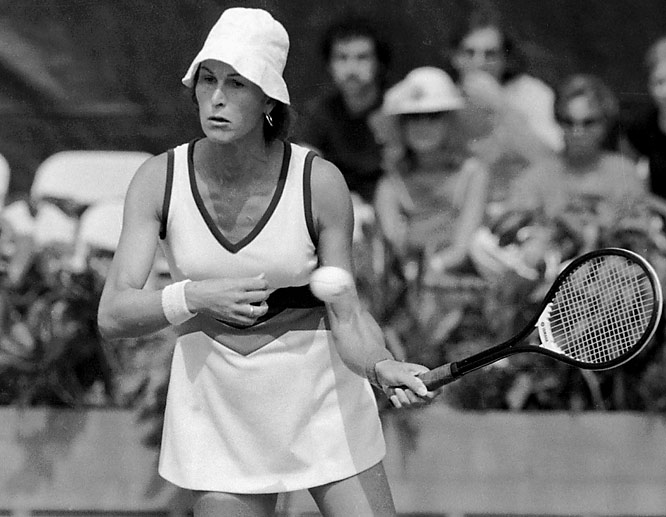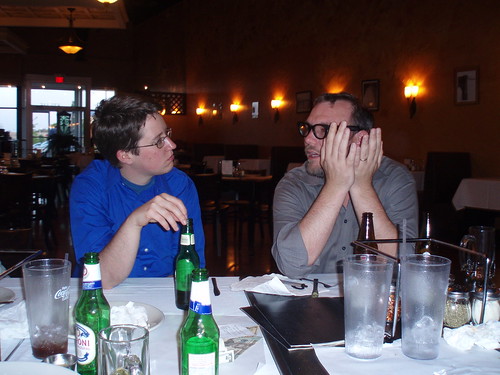Notes Towards Day 6: Blurring the Lines?
Class Keeping:
Introductions: Cat, Solomon, Sugar Spice. Wednesday: Hillary, Farhat, Hannah.
Pingbacks: Looks like it only grabs one and it doesn’t grab any from pages (vs. posts).
Preview and drafts: Just a reminder that if you hit “preview this page,” it doesn’t save it and you need to remember to go back and publish it. Drafts are saved automatically. On that note, there are quite a few drafts, which is fine, but just wanted to make sure no one was missing anything.
Images and copyright: Many of the images we’ve included are copyrighted. We should provide a cite for these. At the very least, provide a link back (see Renee Richards photo below). If you want to find creative commons licensed images, try Flickr or CreativeCommons.org. Most of these can be used with a simple attribution.
Writing Groups are posted–see link above.
Today we have visitors: Ryan Brazell and Pemwrez2009. (Ryan is on the left in the picture).
Below is a series of comments/questions informed by our readings and postings, but I expect the conversation to go wherever it may.
I. First, I’d like to both of you the opportunity to tell your story as much as you feel comfortable sharing. Why did you decide to take the step of transitioning and what has the process been like so far?
II. We’ve talked a lot about labels in this class and I think we’re becoming increasingly uncomfortable with them. How do your situations defy the idea of labeling (especially gender labeling) and also seem to need to be labeled (something our readings discussed), especially by the medical community, but perhaps also by employers, etc.?
III. How has technology played a role in your decision/process? If technology is playing a key part in your process, do you find the fact that technology exists to potentially achieve your goals empowering? Why or why not?

Renee Richards, from http://vault.sportsillustrated.cnn.com/vault/gallery/featured/GAL1144754/1/index.htm
Posts from the clas that have questions or potential ares of exploration:
The relationship between homosexuality and transgender. (Baibh)
since gender seems to be such a fluid ideal based on physical appearance and societal construction, what does it mean to be transsexual and homosexual? Transsexual and heterosexual? If people can construct their bodies to be physical representations of their psychological manifestations who is to say that there is even “transsexual”? (in other words, if we agree that gender is a construct, is it not therefore true that transsexual might be viewed as art of the body similar to a tattoo or piercings?)
Alex on whether transitioning perpetuates gender norms:
To me gender is a spectrum and it is acceptable to fall anywhere on that spectrum regardless of your biological sex. When someone decides to transition to the opposite sex, it feels as if they might be perpetuating the notion that gender is not a spectrum and that it is not okay for a women to be “masculine” or for a man to be “feminine,” that you must physically be the sex that is associated with your chosen gender.
On a different note, a question (which might be too personal) that I’d like to ask our guests on Monday is how they feel their sexuality changes as their biological gender and gender identity is changing. Also, how do you think your transition plays a role in the social constructs of gender roles? Do you think it perpetuates society’s narrow definition of being a man or a woman?
But I think I need to question what I mean when I think of “natural.” It seems to come from an idea of how we lived in a state of nature. Central heating, vitamins and exercize machines definitely aren’t natural in that sense, but they are still beneficial. Also, the fact remains that we have a longer life expectancy now than before. I’m curious: what do you all think of when you think of “natural?” How do you designate something as natural or not?

